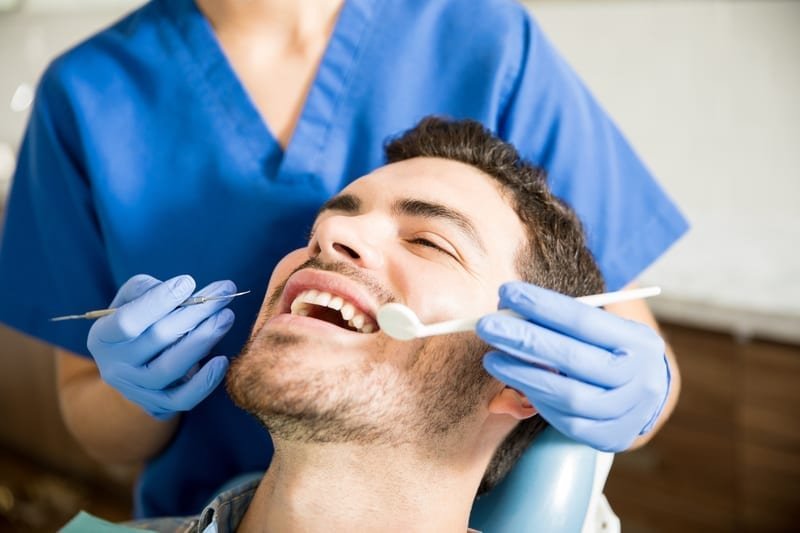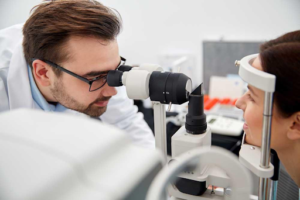How to Prepare for a Dental Check Up?

An initial dental checkup involves having the gums and teeth examined by a dentist to ensure they are healthy, as well as taking X-rays which may reveal issues that are otherwise invisibly.
Preparing for a dental checkup involves brushing and flossing before attending their appointment, while providing their full medical history as many health problems can affect dental health.
Arrive on Time
Those who have put off visiting their dentist should make it a point to schedule their appointment as soon as possible, in order to reduce anxiety about visiting and fill out any paperwork before meeting with dental hygienists and dentists for cleaning of teeth. Being on time will allow this process and gives dental hygienists and dentists time to prepare.
Make an appointment with your dentist every six months in order to prevent serious oral health problems like gum disease, tooth decay and other illnesses from emerging. Unfortunately, many people tend to visit only after experiencing issues arise – this is not advised! Regularly visiting the dentist allows early identification and treatment of issues.
A typical dental checkup involves sitting in a dentist’s chair and opening your mouth wide so they can assess both teeth and gums for signs of damage or other issues. They may use special measuring equipment to measure any wide gaps between gums and teeth that might indicate gum disease.
Preparing for a dental appointment should include taking a shower and brushing your teeth. You should also avoid eating foods that could stain your teeth or contain too much sugar as these could do more harm than good. Brush twice daily and floss every day to maintain healthy teeth. Avoid using any whitening products which might stain them further after recent bleaching treatments have taken place; use of bleaching products can stain the enamel even further than bleaching procedures can.
Bring Your Dental Insurance Card
Before leaving home, remember to grab your dental insurance card and bring it with you. This will allow the dentist to verify your coverage and prevent any unexpected bills. Also, be sure that it contains both membership/group ID number as well as actual card used to pay premium – otherwise people might present health insurance cards thinking they were dental ones and cause unnecessary confusion!
As well as your insurance card, it is also necessary to bring photo identification such as a driver’s license or passport in order to verify your identity and that you are indeed the person making an appointment. Failure to do so could delay it further and waste valuable time during its processing.
Bring along a list of your medications, supplements and allergies so that your dentist or hygienist has a more complete picture of your oral and overall health, and can prevent complications later.
A typical dental checkup comprises two main parts: cleaning and exam. At the cleaning stage, special tools will be employed to remove plaque and tartar that has not been effectively cleared away by brushing or flossing alone. Following this, a fluoride treatment will be applied in order to strengthen tooth enamel while fighting harmful bacteria.
At the conclusion of your dental checkup, your Best Dentist in Noida will conduct an x-ray exam of your mouth to gain a more complete picture of what’s going on underneath its surface. This allows them to detect issues like decayed bone structures, infections or tumors if any exist and identify potential solutions quickly and efficiently.
Avoid Eating Too Much Food
Based on the type of procedure involved during a dental check-up, it may be necessary to restrict food for some time prior to an appointment. This is especially relevant when planning to have x-rays taken of your mouth as this allows dentists to identify issues lurking underneath gums or teeth like impacted teeth, bone decay and tumors that might otherwise remain hidden from sight.
An effective way to prevent serious dental issues is visiting a dentist regularly, enabling him or her to remove plaque or tartar buildup and polish your teeth as well as detect early signs of tooth decay or gum disease before it worsens.
As a rule of thumb, patients should visit their dentist every six months. However, if there are any concerns over oral health or family history of certain dental problems, then more frequent visits might be beneficial.
Patients should aim to brush and floss twice daily and daily flossing, in order to maintain a healthy smile and prevent small issues from turning into larger issues. Your dentist may suggest specific toothpaste or mouthwash for use between appointments to keep the teeth clean and healthy between appointments, and give advice as to how you can take better care of your teeth at home so as to reduce risks of serious dental issues arising in future – giving such advice can save money as it reduces emergency dental procedures that are both more expensive and inconvenient.
Avoid Smoking
There are numerous steps you can take to protect yourself against serious dental issues, including brushing your teeth regularly and limiting sugary food. Unfortunately, certain genetic predispositions can make developing certain dental issues more likely; that is why it is vitally important to visit the dentist frequently and maintain healthy oral hygiene habits.
An annual check up involves two steps. First, the hygienist takes any necessary X-rays before cleaning the teeth using a scaler to remove plaque and tartar from gum lines and polishing the surface stains with gritty paste polish. They will also floss between teeth to make sure there are no hidden pockets for bacteria to gather in.
Once the hygienist is complete, a dentist will conduct a visual exam of the mouth and check for signs of dental disease, including red or bleeding gums, facial or neck swelling and tooth decay. They also examine salivary glands to ensure sufficient production. Saliva serves multiple functions – protecting teeth from bacteria while digesting food as well as providing protection for gums from bleeding.
Once a dentist is finished with their evaluation, they will advise the patient of next steps. This may include scheduling another dental appointment or providing advice about improving oral hygiene habits. They may also offer tips and resources for smoking cessation if required.
Talk to Your Dentist
As it’s essential to discuss any concerns with your dentist, it is imperative that you discuss any dental problems you are experiencing with him/her. This doesn’t just apply to cavities and teeth cleaning but could include problems like bleeding gums, sensitivity or habits like snoring and tooth grinding (bruxism). Unfortunately many patients forget these aspects, leading to serious dental complications down the line.
If your gums bleed when brushing or flossing, this could be an early warning of gum disease and can be easily treated when caught early. Furthermore, sensitive teeth or broken fillings could signal that repair needs to be made; in such instances it would be wise to seek professional assistance as soon as possible.
At your appointment, make sure to inform the dentist of all medications you are currently taking as certain can increase the risk of bleeding. Furthermore, inform him or her if you suffer from stomach conditions or immune system disorders that could impair oral health.
Follow these simple tips to prepare for a dental check up and have an easier and less stressful experience. Regular visits to your dentist are essential in terms of preventative care; regular appointments will save both money and discomfort in the long run. For any further inquiries about our appointments or their scheduling please do not hesitate to reach out – our office team are always more than happy to assist! We look forward to meeting you soon.


